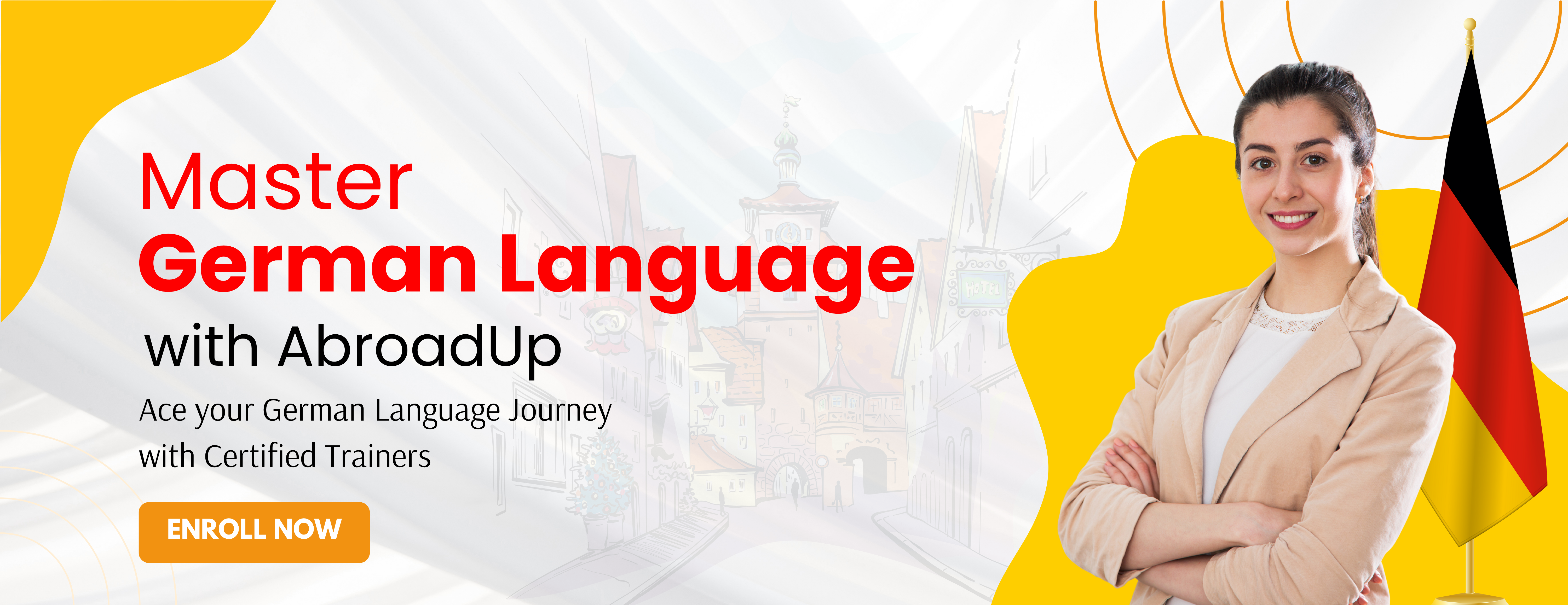
The demand for German language skills has surged in recent years, with global companies and institutions actively seeking professionals fluent in German. Whether for career growth, study abroad, or personal development, now is the perfect time to learn German and unlock exciting opportunities.
Enroll now in the most practical, career-focused, and comprehensive German language course in Delhi. Master German from beginner to advanced levels with expert trainers, immersive lessons, real-life conversations, and international exam preparation (A1 to B2). Start speaking confidently and take your future global . Join the top-rated German language course today!
200+ Reviews
Students Mentored
Guarenteed Result
Are you looking to learn German in Delhi and enhance your global career prospects, education opportunities, or personal growth? AbroadUp offers expert-led German language courses in Delhi that are designed for students, professionals, travelers, and study-abroad aspirants. Whether you’re targeting the Goethe-Zertifikat exam, applying to German universities, or seeking a competitive edge in global job markets, our German classes in Delhi will take you there.
German is the most widely spoken native language in Europe and is ranked among the top 10 most valuable languages globally. Whether you’re in engineering, IT, healthcare, finance, or automotive industries, speaking German opens doors to top-tier companies and institutions.
🔹 German is essential in industries like:
🔹 Leading German companies hiring globally:
BMW, Bosch, Siemens, SAP, Lufthansa, and many more.
🔹 Studying in Germany?
Fluency in German boosts your chances for DAAD scholarships, university admissions, and visa success.
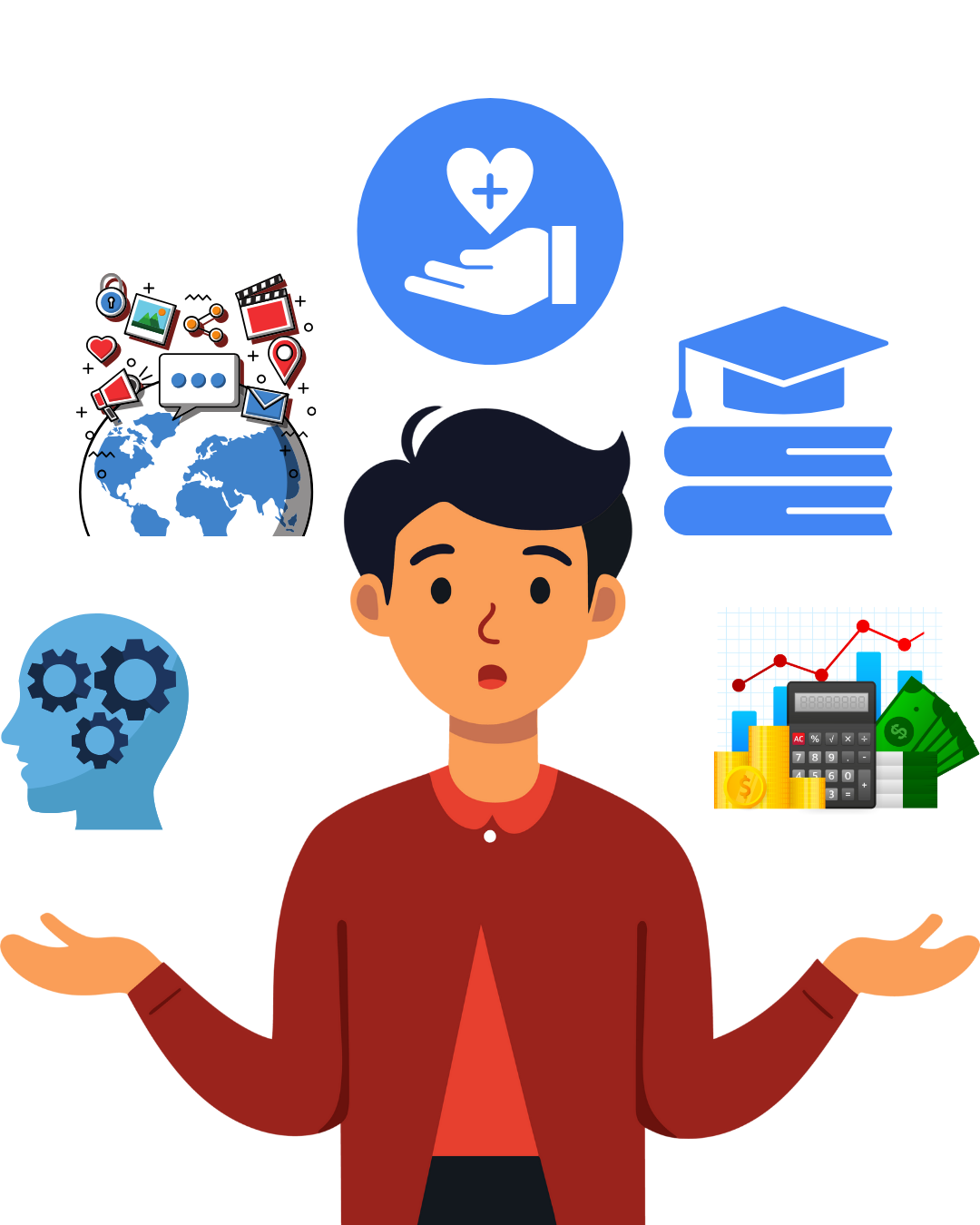





Fill out the form below to get a free 1-on-1 consultation with our expert German language counselors.
✅ Learn from certified trainers (A1 to B2 levels)
✅ Online & offline batches available
✅ Assistance with study or work visa for Germany📞 Get a callback within 24 hours via WhatsApp or phone.
👉 Limited seats available – secure your spot now!
AbroadUp offers top-quality professional German language training tailored for both students and corporate professionals.
At AbroadUp, our trainers are highly qualified and experienced professionals with strong expertise and fluency in the German language.
We conduct classes in small groups to ensure every student receives personalized attention and dedicated support throughout their learning journey.
AbroadUp provides end-to-end support from language training to visa guidance ensuring a smooth and successful journey to Germany.
“At AbroadUp, I wasn’t just another student. My mentor understood my goals and helped me prepare for the A1 German exam with care and clarity.”
I visited many institutes, but AbroadUp’s small batch size and expert trainers made a big difference. I cleared B1 in my first attempt!
What I love about AbroadUp is how focused they are on each student. My trainer knew my weak areas and helped me build confidence.
As someone working full-time, I needed flexible German classes. AbroadUp's online sessions were interactive, practical, and perfect for corporate learners.
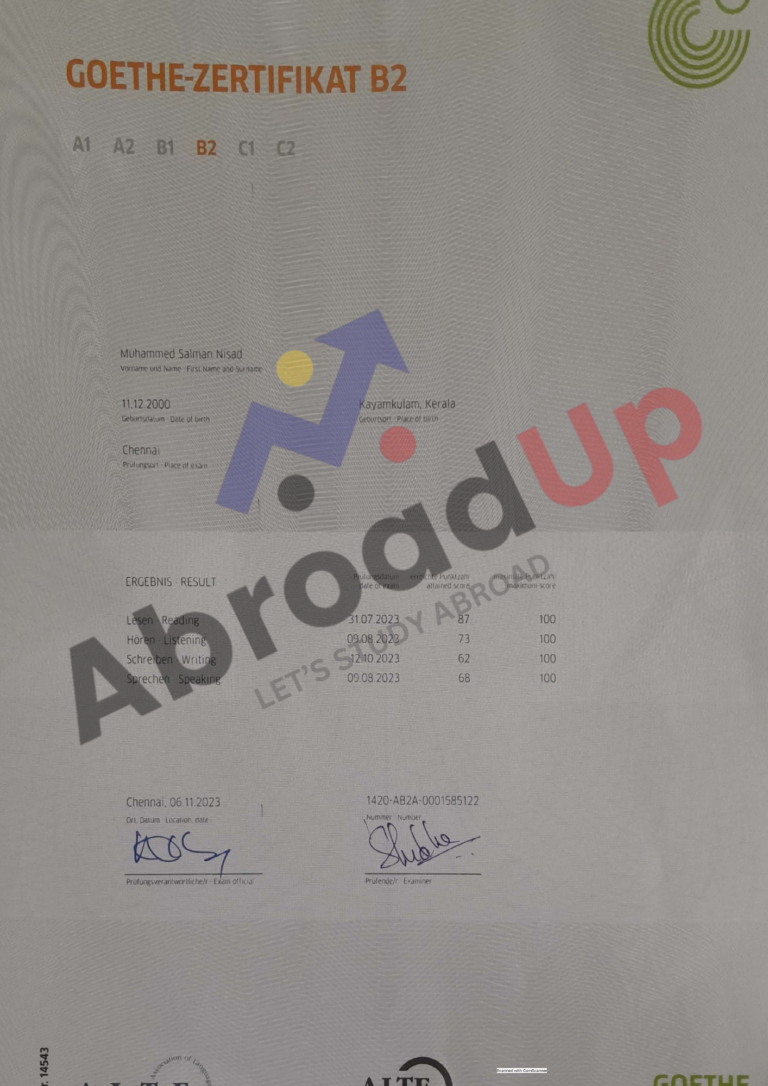
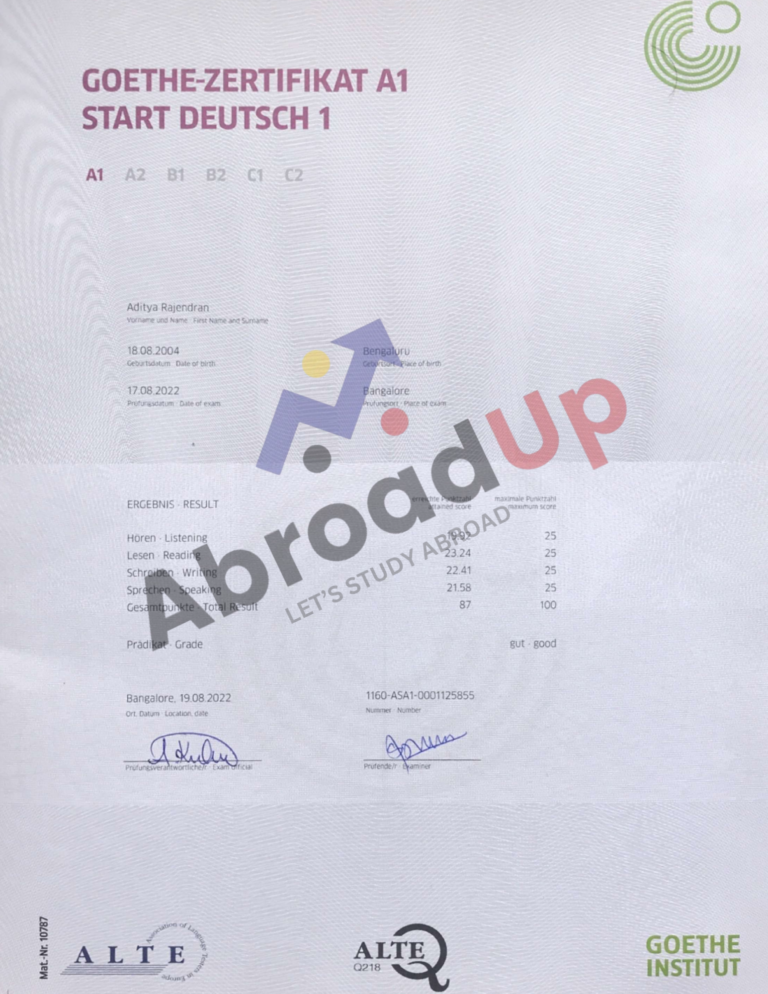
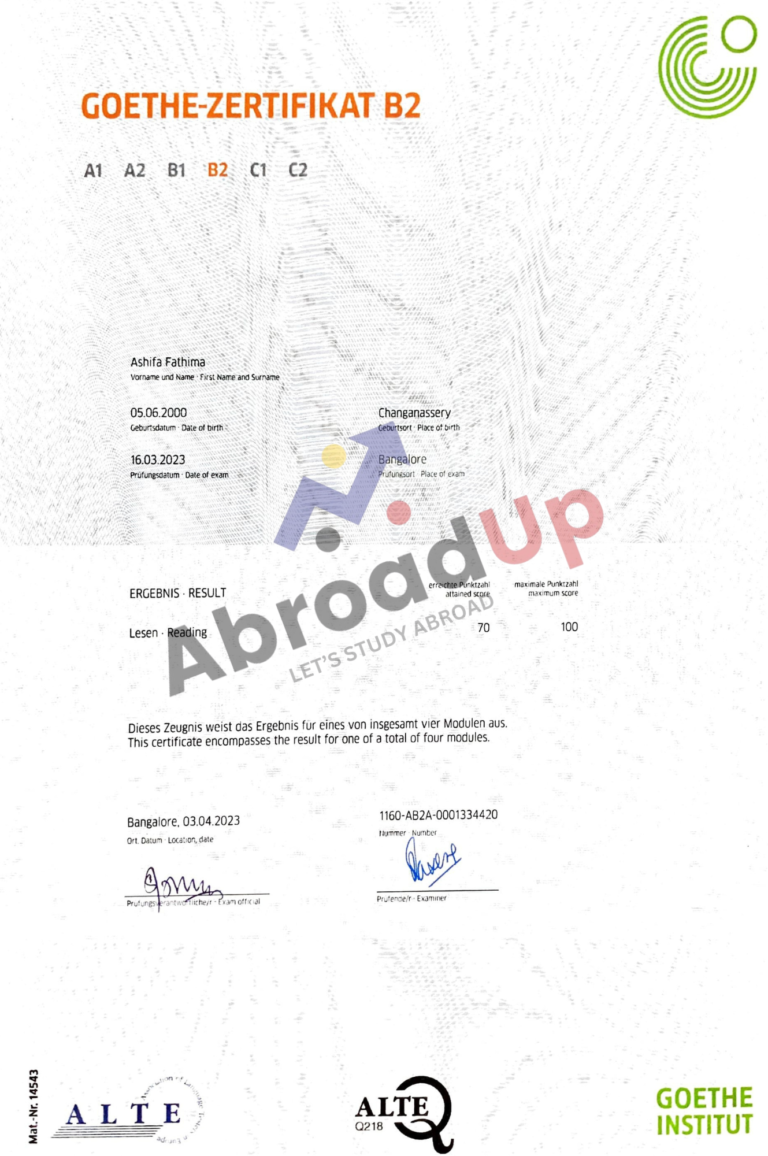
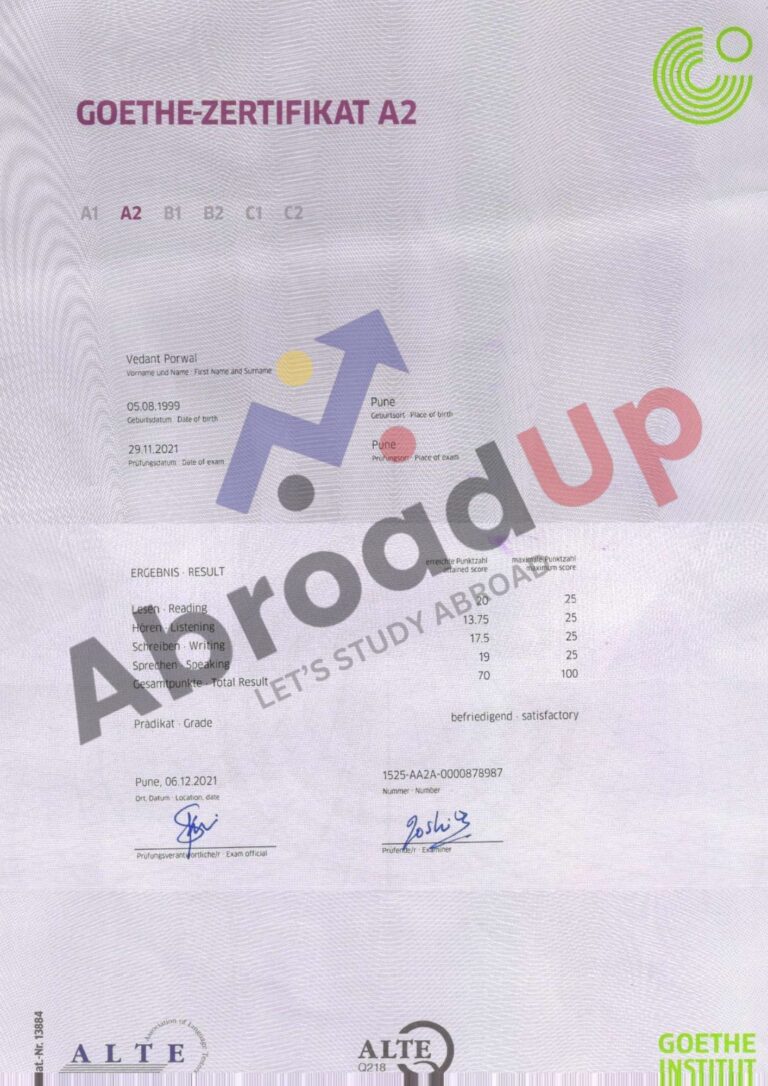
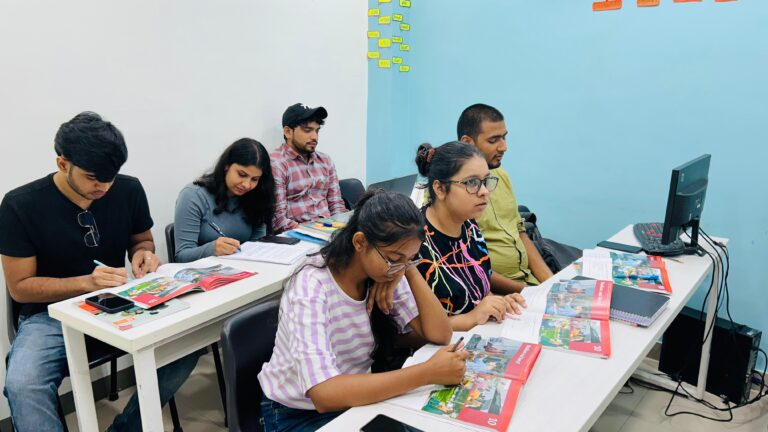
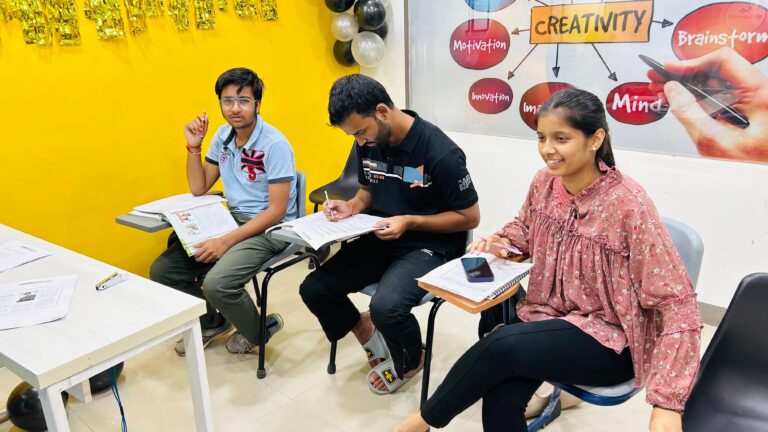
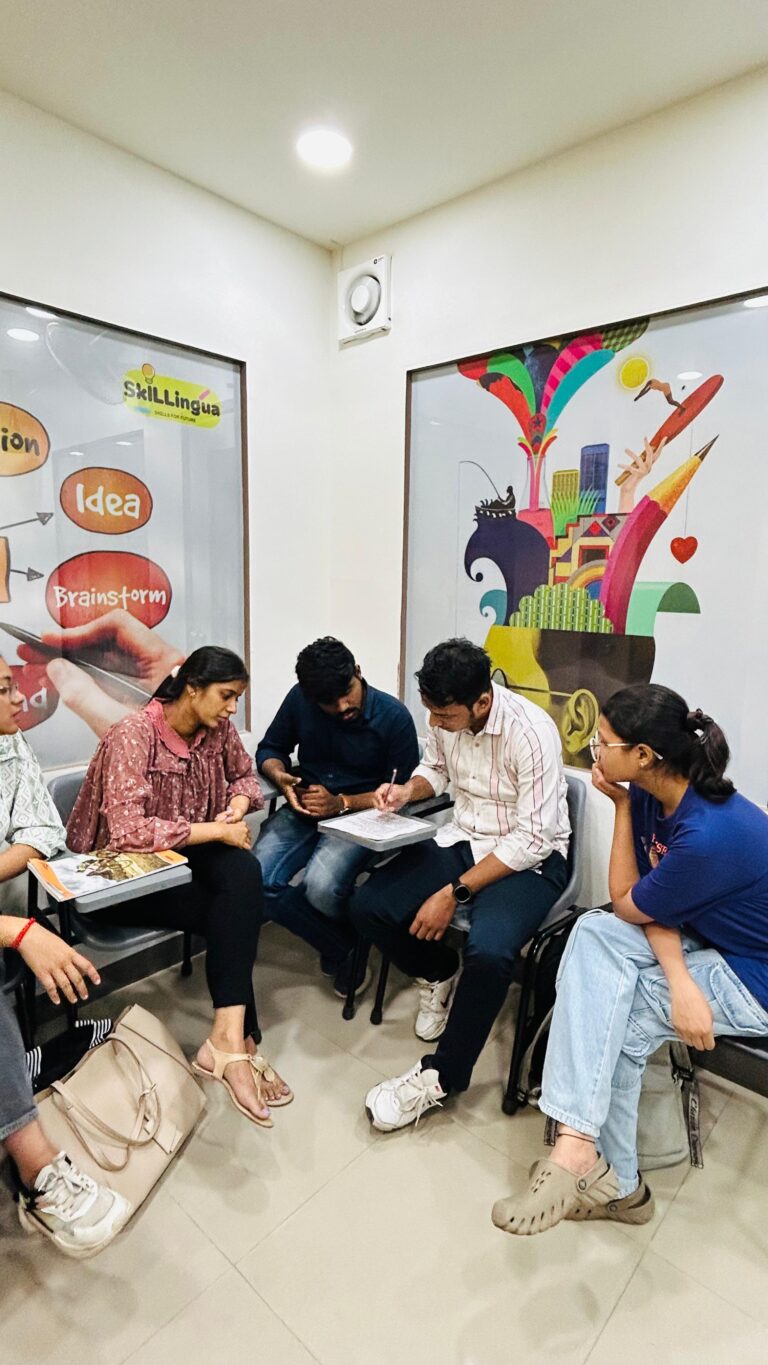
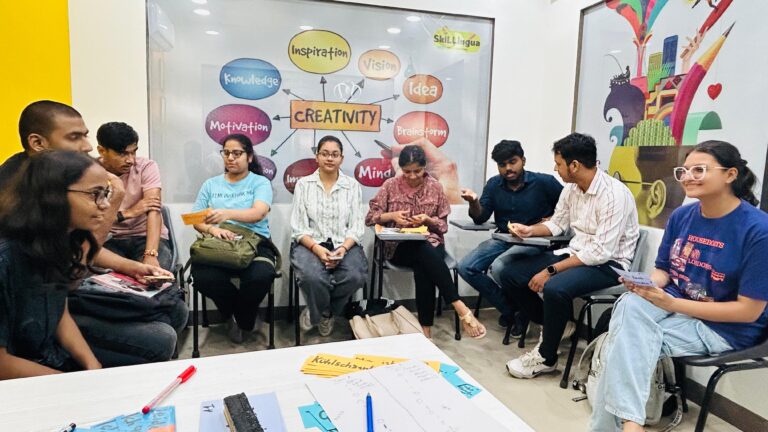
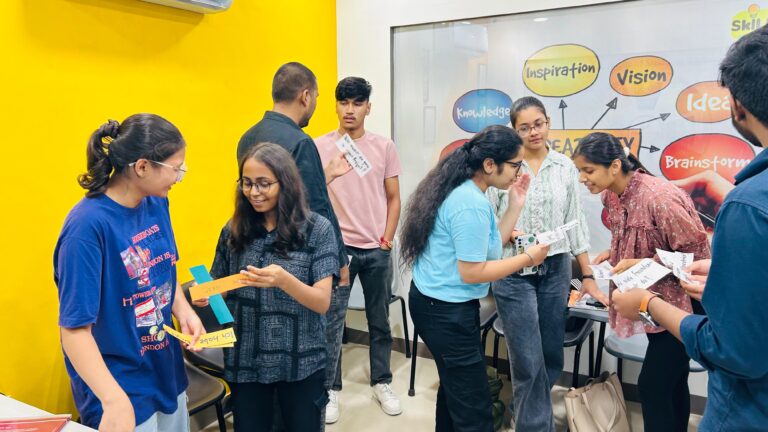
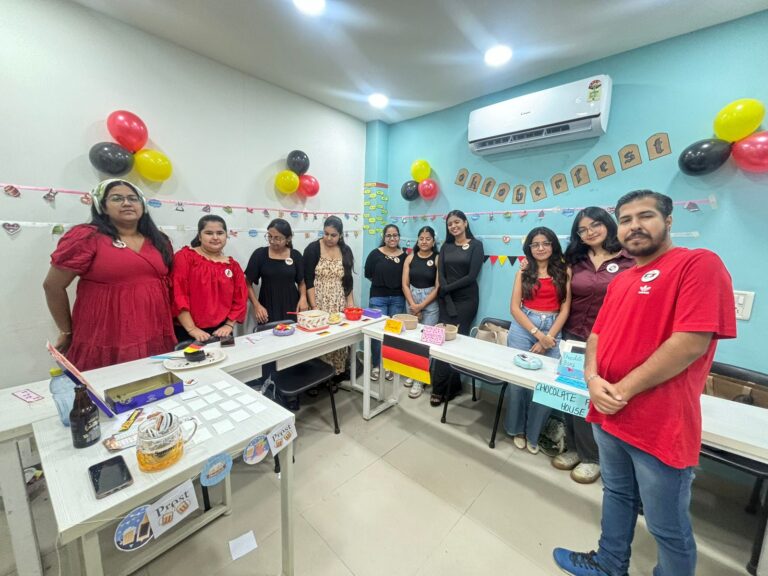
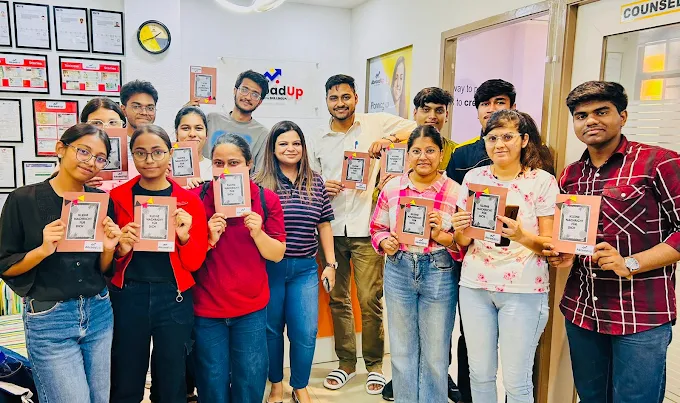

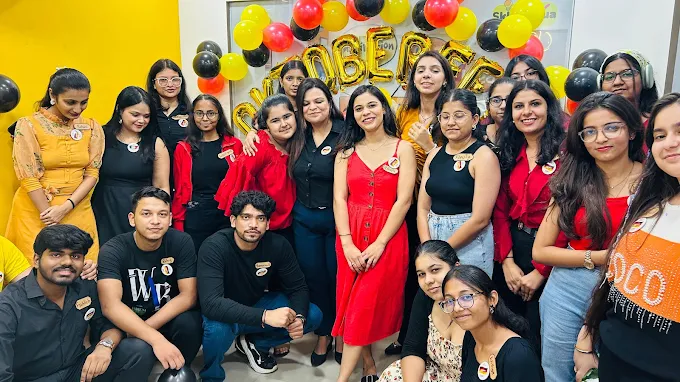
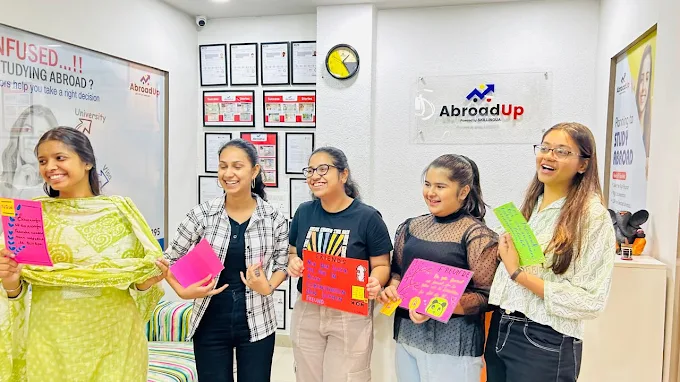



AbroadUp is an innovative study abroad consultancy with its Head Office at Pitampura, Rohini, Delhi. With its “Student First” approach, AbroadUp and its experienced mentors hand-hold and guide students towards diverse range of study abroad programs, curated internships, affordable countries, and global opportunities.
©2024. AbroadUp™ Owned by Skillingua Global Pvt. Ltd.